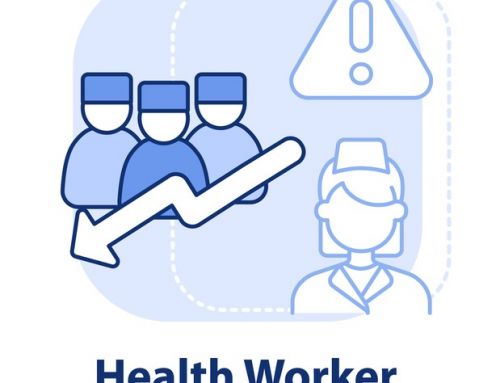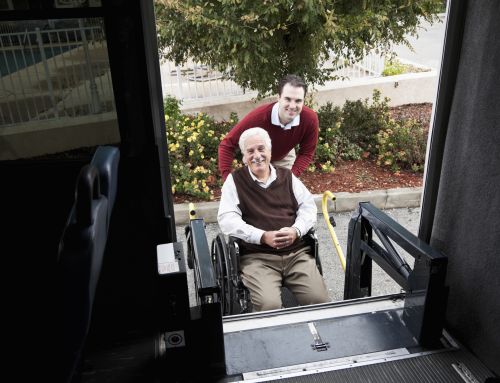Via Electronic Submission
Acting Administrator Tavenner
Centers for Medicare and Medicaid Services
Department of Health and Human Services
P.O. Box 8016
Baltimore, MD 21244
Re: CMS-2334-P: Medicaid, Children’s Health Insurance Programs, and Exchanges: Essential Health Benefits in Alternative Benefit Plans, Eligibility Notices, Fair Hearing and Appeal Processes for Medicaid and Exchange Eligibility Appeals and Other Provisions Related to Eligibility and Enrollment for Exchanges, Medicaid and CHIP, and Medicaid Premiums and Cost Sharing
Dear Acting Administrator Tavenner:
Dialysis Patient Citizens (DPC) appreciates the opportunity to comment on the proposed rule entitled “Medicaid, Children’s Health Insurance Programs, and Exchanges: Essential Health Benefits in Alternative Benefit Plans, Eligibility Notices, Fair Hearing and Appeal Processes for Medicaid and Exchange Eligibility Appeals and Other Provisions Related to Eligibility and Enrollment for Exchanges, Medicaid and CHIP, and Medicaid Premiums and Cost Sharing” (CMS-2334-P).
As America’s largest patient-led dialysis organization, DPC represents more than 24,000 dialysis and pre-dialysis patients and their families. DPC’s mission is to improve the quality of life of dialysis patients by engaging policy makers, providers and the public. Through patient education, empowerment and advocacy, we work to increase awareness about kidney disease and promote favorable public policy.
We would like to thank the Centers for Medicare and Medicaid Services (CMS) for issuing this important regulation. We are generally supportive of the plans outlined in CMS-2334-P and we would like to take this opportunity to highlight several key areas for your consideration when preparing the final rule on this critical issue.
I. Premium Assistance for Medicaid Eligible Individuals
DPC strongly supports the option for states to provide Medicaid eligible individuals with premium assistance to purchase insurance coverage offered through exchanges. We also strongly support the requirements that Medicaid continue to cover all Medicaid benefits not covered by qualified health plans (QHP) in exchanges for these beneficiaries and that cost-sharing by the individuals would be subject to the same limits as under the state plan. These provisions will grant beneficiary access to the broader provider networks often offered by private plans, while ensuring that these individuals still retain access to vital medical services offered by Medicaid.
However, we urge CMS to ensure that these individuals still retain their status as a Medicaid beneficiary, even if they are enrolled in a QHP. This Medicaid population often has complex and changing health needs and, by solidifying their Medicaid status, CMS will ensure that they can more easily transition into a more appropriate Medicaid plan if their health situation changes.
DPC also urges HHS to consider putting in place additional protections to ensure people understand their rights and responsibilities and that their rights are protected. These protections should include specific requirements to:
- Ensure people understand they have access to all Medicaid benefits not covered by the QHP and how to access Medicaid benefits that are that not covered by private insurance;
- Ensure people understand rules and cost-sharing between the two different programs.;
- Provide guidance on how to monitor cost-sharing so that people do not exceed permissible cost-sharing; and
- Detail expectations regarding coordination between Medicaid and the QHP issuer to ensure the above occurs.
II. Medically Frail Exemption from Mandatory Enrollment in ABP
DPC strongly supports the medically frail exemption from mandatory enrollment in an alternative benefit plan (ABP). We commend CMS for including in the definition of “medically frail” individuals with “serious and complex medical conditions,” which we presume describes late stage chronic kidney disease and end stage renal disease. However, we have questions about how people who qualify for exemption from mandatory enrollment in a benchmark plan will be identified and urge CMS to include additional details regarding how this will be accomplished.
The importance of ensuring that medically frail individuals and other individuals exempt from mandatory enrollment have the ability to access the full state Medicaid benefit package if the services offered in the ABP are insufficient cannot be overstated. We would like additional information regarding how people will be identified as meeting the criteria for being medically frail and are therefore exempt from mandatory enrollment in a benchmark plan.
We recommend adding a requirement that the notice provided to individuals who have been found eligible for the expansion group include detailed information regarding how one can qualify for an exemption and the services and supports that would be available to a person who is exempt that are not available in the ABP. This will ensure beneficiaries have access to the full range of information they need to make smart health coverage choices and guarantee access to the care they need. We also support the establishment of a process for transitioning individuals who acquire a condition after they have been enrolled into an ABP that may not provide services related to that condition.
III. Minimum Essential Health Benefit Coverage by ABPs
We are supportive of the requirement that all ABPs cover essential health benefits (EHBs). In many cases, this decision alone will ensure that beneficiaries with CKD and ESRD will have access to the services they need. However, we are concerned that the proposed regulation lacks standards for determining adequate coverage within each EHB category. This is a failing of the EHB final rule release on February 20, 2013, but it has a material impact on this proposed rule as well. We recommend CMS provide a specific cross-reference to 42 CFR §440.230(b) and state explicitly that the requirement—that every service offered through the Medicaid state plan “be sufficient in amount, duration, and scope to reasonably achieve its purpose”—applies to the requirement to provide essential health benefits in the Alternative Benefit Plans.
DPC also recommends that CMS require states to supplement the benefits contained in a benchmark when an ABP benefit is insufficient in amount, duration, or scope to reasonably achieve its purpose. In addition, DPC urges CMS to adopt the anti-discrimination provisions discussed below to ensure there is adequate coverage within each essential health benefits category within the ABPs.
IV. Nondiscrimination Standards for ABPs
Dialysis Patient Citizens appreciates the inclusion of the non-discrimination mandate in § 440.347(e), which states “Essential health benefits cannot be based on a benefit design or implementation of a benefit design that discriminates on the basis of an individual’s age, expected length of life, an individual’s present or predicted disability, degree of medical dependency, or quality of life or other health condition.” However, to ensure that the non-discrimination requirements for Medicaid beneficiaries are no less robust than the non-discrimination requirements articulated for provision of EHB in private plans through the exchanges, we urge HHS to explicitly include the other non-discrimination mandates from the ACA that attach to the private insurance EHB requirements. For instance:
- Essential health benefits must “reflect an appropriate balance among the categories” of covered benefits;
- The Secretary may “not make coverage decisions, determine reimbursement rates, establish incentive programs, or design benefits in ways that discriminate against individuals because of their age, disability, or expected length of life”; and,
- EHB must “take into account the health care needs of diverse segments of the population, including women, children, [and] persons with disabilities”.
In addition to taking the steps above, HHS should prohibit ABPs from including:
- Participant cost-sharing designs that are more burdensome on some benefits than others;
- Unreasonable and arbitrary visit and dollar limits on a specific category of benefits, so as to discourage participation by individuals with certain conditions or disabilities;
- Targeted use of utilization management techniques for some benefits, and not others; and
- Defining the benefits in such a way to exclude coverage for those services based upon age, disability or expected length of life.
Taken together, these protections ensure that people with CKD or ESRD, as well as people with other conditions and disabilities, are protected from plan designs that systematically bar access to medically necessary care and treatment services through discriminatory service exclusions and limits, utilization management techniques and onerous cost-sharing.
V. Cost Sharing Provisions
DPC also has reservations related to the cost-sharing changes made in this proposal. People with chronic conditions, such as CKD and ESRD, have high utilization of outpatient services and prescription drug coverage. Although these cost-sharing proposals might seem like nominal increases, for people with limited or fixed incomes, there really is no such thing as a nominal cost. For individuals who live below the federal poverty line while trying to properly manage a complex chronic condition, even cost-sharing changes perceived as minimal can make-or-break a budget.
People with ESRD often suffer from multiple comorbidities including diabetes (present in 50% of dialysis patients), hypertension and cardiovascular disease, which leads most patients to take an average of 8-10 different oral medications. On top of that, these individuals must stick to a sometimes restrictive diet and arrange transportation generally three times a week to their dialysis facility. As a result, we are extremely concerned by the potential cumulative effect that the increased cost-sharing across different service categories (outpatient, prescription drugs and the possibility of cost sharing for HCBS) could have on these beneficiaries.
Numerous studies have shown that even nominal cost-sharing obligations for vulnerable populations can deter people from accessing the care and treatment that they need to stay healthy.1 For people with complex medical needs, the failure to get any needed care can have a cascading effect on the persons health and result in significant increases in health care cost and utilization in the long-run. While the cost-sharing levels being proposed in the rule may seem reasonable when compared to a commercial insurance plan, these co-pays will be a significant barrier for many very low-income beneficiaries.
We are also troubled that Medicaid beneficiaries will not receive the same free preventive services as other individuals using private insurance. Charging low-income individuals for services that higher income individuals will receive without cost-sharing in private plans is counter intuitive. Prevention services help keep individuals healthy and lower health care utilization. Prevention services can prevent people with chronic conditions from developing secondary conditions and very complex health needs and for these reasons we urge CMS to exempt Medicaid beneficiaries from cost sharing for preventive services.
VI. Conclusion
With more than 31 million Americans currently suffering from CKD and more than 400,000 on dialysis, it is vital for these patients to have access to comprehensive and affordable health coverage. We appreciate CMS’ commitment to ensuring that some of the most vulnerable patients are able to take full advantage of the reforms laid out in the ACA. We thank you for your consideration and welcome the opportunity to work with you on this and other important issues in the future.
Sincerely,
Hrant Jamgochian, J.D., LL.M
Executive Director
1. S. Artiga & M. O’Malley, “Increasing Premiums and Cost Sharing in Medicaid and SCHIP: Recent State Experiences,” Kaiser Commission on Medicaid and the Uninsured (May 2005).




















